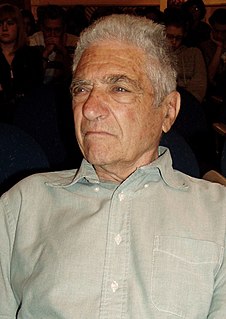A Quote by Joel Edgerton
Some of us are better at owning the responsibility of our actions than others.
Quote Topics
Related Quotes
The quality of everything we do: our physical actions, our verbal actions, and even our mental actions, depends on our motivation. That's why it's important for us to examine our motivation in our day to day life. If we cultivate respect for others and our motivation is sincere, if we develop a genuine concern for others’ well-being, then all our actions will be positive.
When we ask we are owning our needs. Asking for love, comfort or understanding is a transaction between two people. You are saying: I have a need. It's not your problem. It's not your responsibility. You don't have to respond, but I'd like something from you.
This frees the other person to connect with you freely and without obligation. When we own that our needs are our responsibility we allow others to love us because we have something to offer. Asking is a far cry from demanding. When we demand love, we destroy it.
Our sense of identity is in large measure conferred on us by others in the ways they treat or mistreat us, recognize or ignore us, praise us or punish us. Some people make us timid and shy; others elicit our sex appeal and dominance. In some groups we are made leaders, while in others we are reduced to being followers. We come to live up to or down to the expectations others have of us.
The pretention that some of us are better than others, I don't think is a very good thing. And who is contributing what to our progress in science is not so obvious and many who don't get that Nobel Prize are better than people... than some of us that do get the Nobel Prize. I think we should not be interested in prizes, we should be interested in learning about nature.
Every day God patiently bears with us, and every day we are tempted to become impatient with our friends, neighbors, and loved ones. And our faults and failures before God are so much more serious than the petty actions of others that tend to irritate us! God calls us to graciously bear with the weaknesses of others, tolerating them and forgiving them even as He has forgiven us.
Spirituality emerged as a fundamental guidepost in Wholeheartedness. Not religiosity but the deeply held belief that we are inextricably connected to one another by a force greater than ourselves--a force grounded in love and compassion. For some of us that's God, for others it's nature, art, or even human soulfulness. I believe that owning our worthiness is the act of acknowledging that we are sacred. Perhaps embracing vulnerability and overcoming numbing is ultimately about the care and feeding of our spirits.
Do you believe in luck, Ludlow?" I had thought about this more than once in my life. "I believe some poeple are luckier than others."..."Which do you believe in, luck or Destiny?" Joe considered a moment befoe replying, "We make our own luck, Ludlow, by our actions and our state of mind. As such you control your own fate. Oney one thing is certain: None of us can escape the grave.
The ends do not justify the means. If our actions will bring harm to others, even in the service of some 'good,' they are almost certainly deluded. If our actions do not come from a kind heart, from loving courage and compassion, they are deluded. If they are based on a distinction between 'us' and 'them,' they stem from delusion. Only to the extent that we act from the wisdom of no separation, understanding how we are woven together, will our intention bring benefit.
Adversity is a severe instructor, set over us by one who knows us better than we do ourselves, as he loves us better too. He that wrestles with us strengthens our nerves and sharpens our skill. Our antagonist is our helper. This conflict with difficulty makes us acquainted with our object, and compels us to consider it in all its relations. It will not suffer us to be superficial.
When life does not go our way or we inadvertently make a mistake, it is so easy to make excuses, place blame on others, or argue that circumstances were against us. But we only progress in life to the extent that we take responsibility for our actions and attitudes, and put forth the initiative necessary to create our own circumstances.
It is possible to be honest every day. It is possible to live so that others can trust us-can trust our words, our motives, and our actions. Our examples are vital to those who sit at our feet as well as those who watch from a distance. Our own constant self-improvement will become as a polar star to those within our individual spheres of influence. They will remember longer what they saw in us than what they heard from us. Our attitude, our point of view, can make a tremendous difference.
The greatest human virtue bears no proportion to human vanity. We always think ourselves better than we are, and are generally desirous that others should think us still better than we think ourselves. To praise us for actions or dispositions which deserve praise is not to confer a benefit, but to pay a tribute. We have always pretensions to fame which, in our own hearts, we know to be disputable, and which we are desirous to strengthen by a new suffrage; we have always hopes which we suspect to be fallacious, and of which we eagerly snatch at every confirmation.




































